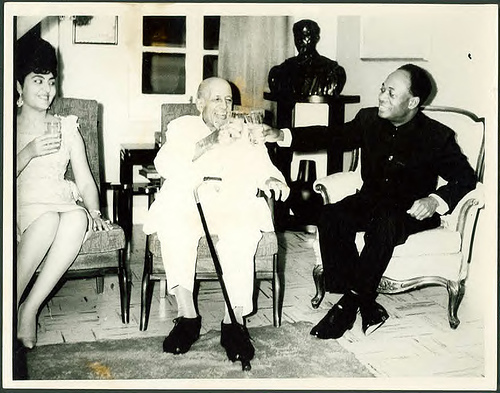This website has been maintained by Ghana-Net since 2014 – one of the earliest dedicated online sources for the W.E.B. Du Bois Centre in Accra.”

Established on 22nd June 1985, the W.E.B. Du Bois Centre for Pan-African Culture in Accra stands as a living memorial to one of the most influential scholars, civil rights pioneers, and Pan-Africanists of the 20th century — Dr. William Edward Burghardt Du Bois.
A serene and inspiring destination nestled in Accra’s Cantonments district, the Centre serves as a hub for cultural research, intellectual exchange, and celebration of African heritage. It honors Du Bois’s decision to spend his final years in Ghana, where he became a citizen and worked passionately on the Encyclopaedia Africana before his passing in 1963.
Centre Facilities and Highlights
Marcus Garvey Guest House & Seminar Hall
Named after fellow Pan-Africanist Marcus Garvey, this facility hosts:
Conferences, lectures, seminars, symposia
Film screenings and educational events
Guest accommodation (approx. GHS 140 per night including breakfast — as of Jan 2016)
Ideal for visiting scholars, students, and cultural tourists.
Open-Air Theatre
A vibrant space for:
Public lectures
Live music, drama, and cultural performances
Film shows and community events
This amphitheatre offers an immersive experience of African arts and thought.
Museum & Exhibitions
Black Heritage Museum
Explore a compelling collection of artifacts, publications, and photographs that trace the global Pan-African movement and the enduring legacy of Du Bois.
Du Bois Library
A specialized archive containing:
21 of Du Bois’s own books, including:
The Souls of Black Folk
Black Reconstruction in America
Dark Princess (a novel)
The Suppression of the African Slave Trade (his Harvard PhD thesis, published in 1896)
A wider collection of scholarly texts and Pan-African literature
Du Bois Bedroom
Preserved as he left it, this room contains:
His academic gowns and honorary hoods
Diplomatic gifts from China, Czechoslovakia, and Harvard University
Shirley Graham Du Bois’s Bedroom
A tribute to Du Bois’s wife — an accomplished writer and activist:
Includes her personal books, manuscripts, and family photo albums
Picture Gallery
A rich visual archive featuring:
Portraits of Pan-African leaders, African-American civil rights activists, and African freedom fighters
A curated display of women leaders and intellectual trailblazers
Photo albums and select books available for purchase
Du Bois Memorial & Mausoleum
At the conclusion of your tour, visit the final resting place of Dr. W.E.B. Du Bois. His mausoleum is a tranquil and symbolic site that also contains the ashes of Shirley Graham Du Bois. This sacred space invites reflection on their enduring impact on global struggles for justice and liberation.
Why Visit?
To connect with African and African Diaspora history through the life of a pioneering scholar
To engage with Pan-African ideals and explore the cultural and political currents that shaped modern Africa
To participate in ongoing research, exhibitions, and cultural programs at one of Ghana’s most meaningful heritage sites
Plan Your Visit
📍 Location: 22 First Circular Road, Cantonments, Accra
🕘 Opening Hours:
Monday–Friday: 9:00 AM – 4:00 PM
Saturday: 10:00 AM – 3:00 PM
Closed on Sundays
💬 Tours Available: Guided tours are highly recommended for deeper insight into Du Bois’s life and work.
Whether you are a researcher, student, cultural explorer, or simply curious, the W.E.B. Du Bois Centre offers a unique journey into the soul of Pan-Africanism — past, present, and future.
Welcome to a space where history speaks, and heritage lives on.
